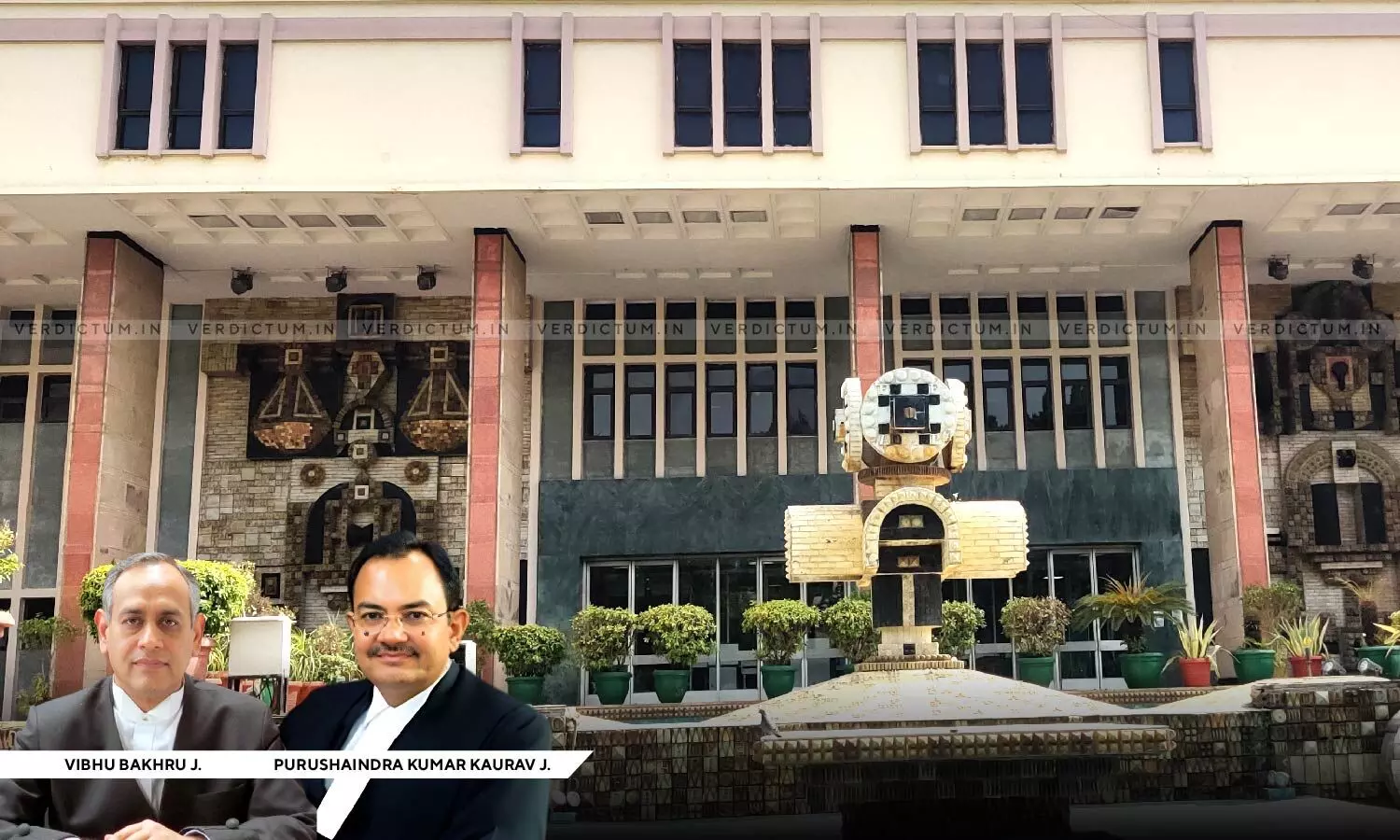
Delhi HC Dismisses Plea Challenging Requirement Of Continuous Practice Of 7 Years For Appointment As District Judge
 |
|The Delhi High Court has recently dismissed a plea challenging the constitutional validity of the recently amended Rule 9(2) of the Delhi Higher Judiciary Services Rules, 1970 (the Rules).
The Bench of Justice Vibhu Bakhru and Justice Purushaindra Kumar Kaurav rejected the plea moved and observed that "In view of the decision of the Supreme Court in Dheeraj Mor v. Hon'ble High Court of Delhi 4, we are unable to accept that Rule 9(2) of the Rules, as set out above, falls foul of Article 233 of the Constitution of India. On the contrary, Rule 9(2) of the Rules is in conformity with the decision in the case of Deepak Aggarwal v. Keshav Kaushik & Ors."
In this case the plea was moved by a lawyer Praveen Garg who argued that Rule 9(2) of the Rules falls foul of Article 233(2) of the Constitution of India as the same does not expressly require a candidate to be in continuous practice of at least 7 years to be eligible to be appointed as a District Judge.
Rule 9(2) was amended on February 2, 2022 following the decision of Supreme Court in the case of Deepak Aggarwal v. Keshav Kaushik & Ors.(2013) 5 SCC 277 and stands as follows-
"9. The qualifications for direct recruits shall be as follows:-
(1) must be a citizen of India.
[(2) must have been continuously practising as an Advocate for not less than seven years as on the last date of receipt of applications.]
[(3) must have attained the age of 35 years and have not attained the age of 45 years on the 1st day of January of the year in which the applications for appointment are invited.]"
Article 233(2) of the Constitution of India provided that a person who was not already in service of the Union or the State would be eligible to be appointed as a District Judge only if he had been an advocate or pleader for not less than seven years and was recommended by the High Court for appointment.
Advocate Prateek Gupta appeared for the petitioner and submitted that the petitioner had practiced as an advocate cumulatively for a period of 7 years and 2 months and that he qualified the eligibility criteria under Article 233(2), Rule 9(2) of the Rules required an applicant to be in continuous practice of at least 7 years as on the date of the application.
It was further submitted that he secured 584.5 marks out of 1000 marks in Delhi High Judiciary Examination which were higher than the marks secured by the candidate placed at the 32nd position of the selection list and that his name was not included in the list on the ground that he had not qualified the eligibility criteria of a continuous practice of seven years as an advocate as on date of filing the online application.
Advocate Gautam Narayan appeared for the Respondent.
The Court noted and relied upon the interpretation of Article 233 (2) in the decision of Supreme Court in the case in Deepak Aggarwal case (supra) and said that the expression 'If he has been for not less than seven years as an advocate', as used in Article 233(2) of the Constitution of India, must be read to mean seven years immediately preceding his appointment/application and not seven years at any time in the past.
The Court also referred to another judgment of the Supreme Court in the case of Dheeraj Mor v. Hon'ble High Court of Delhi (2018) 4 SCC 619 and refused to accept the contention that Rule 9(2) fall foul of Article 233.
Accordingly, the petition was dismissed as unmerited.
Cause Title- Praveen Garg v. The High Court of Delhi & Ors.
Click here to read/download the Judgment